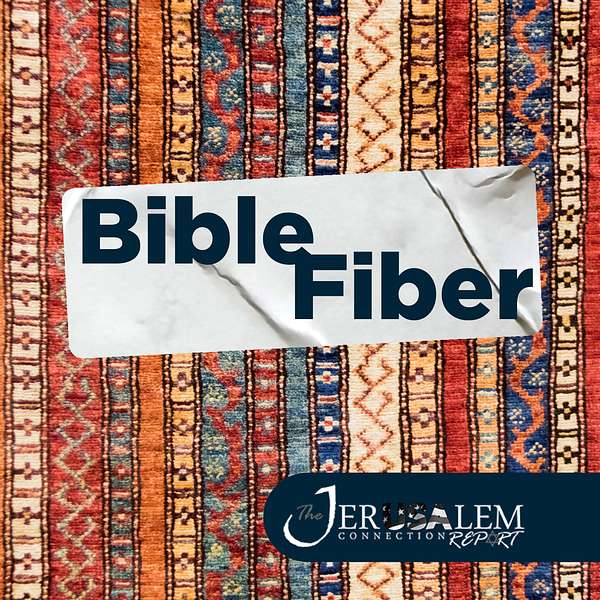
Bible Fiber
- Tired of scripture study guides that leave you wanting more substance? Discover a resource that offers comprehensive teaching and deep insights into the prophetic message.
- Have you been avoiding the more challenging books of the Bible because they are hard to understand or apply to your life? Let Bible Fiber build your foundational knowledge about ancient Israel’s history and culture.
Welcome to Bible Fiber, where we are encountering the textures and shades of the biblical tapestry through twelve Minor Prophets, two reformers (Ezra and Nehemiah), and one priest in exile (Ezekiel). Along the way, we take pauses for minicourses on peoples of the Bible and ponder why the prophetic office ended. I am Shelley Neese, president of The Jerusalem Connection, a Christian organization devoted to sharing the story of the people of Israel, both ancient and modern.
You won't find another podcast so committed to teaching the parts of the Bible that get the least attention and also is constantly calling for prayers for the modern state of Israel during this moment of crisis.
Bible Fiber
Habakkuk 2
Welcome to Bible Fiber where we are encountering the textures and shades of the prophetic tapestry in a year-long study of the twelve minor prophets, one prophet each month. I am Shelley Neese, president of The Jerusalem Connection, a Christian organization devoted to sharing the story of the people of Israel, both ancient and modern.
This week we are studying the second chapter of Habakkuk. The dialogue between God and Habakkuk continues with God addressing Habakkuk’s second question: Why does God tolerate the wicked persecuting the righteous? (Hab. 1:13).
Habakkuk does not offer a prescription for how he thinks God should right all that has gone wrong in Judah. In the prophet’s mind, perhaps God should have appointed a new judge, like Samuel, who could rectify the problems of the judicial system. Or perhaps Judah needed a warrior king like David to bring peace to Jerusalem. Or they needed a reformer like Josiah who would rid the nation of idolatry. Instead, God told the prophet he was raising up the Babylonians as the instrument of his judgement.
The answer tormented Habakkuk. Like the other prophets, he saw the futility behind the endless cycle of violence. In his day, Egypt, Assyria, and Babylon were in a constant power struggle. What one empire built up, the next tore down. The smaller nations, like Judah, stayed vulnerable to the revolving door of conquering armies. The prophets were Yahweh’s megaphone, reminding His people that all empires were accountable to Yahweh (Jer. 25:31) and the way they worshipped their own military might was repulsive to Yahweh (Hos 8:14; Mic. 7:16).
Habakkuk stands out among the prophets as he was determined to get an answer as to why God associated Himself with the wrangling of earthly empires. Habakkuk’s problem from the start of his book has not been that another pagan army is coming for Judah. He wants to know why God has a hand in the process.